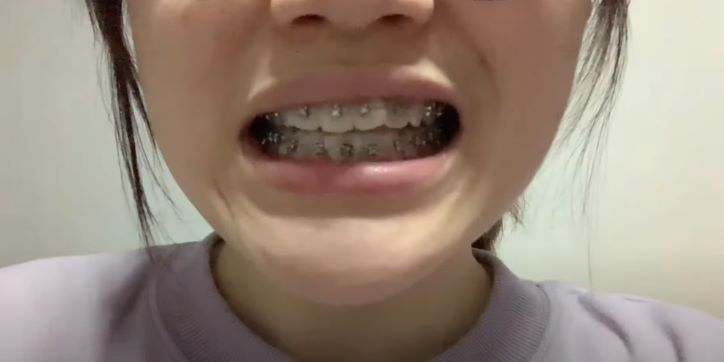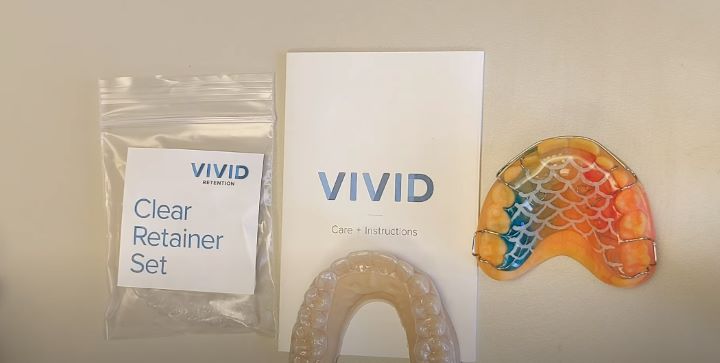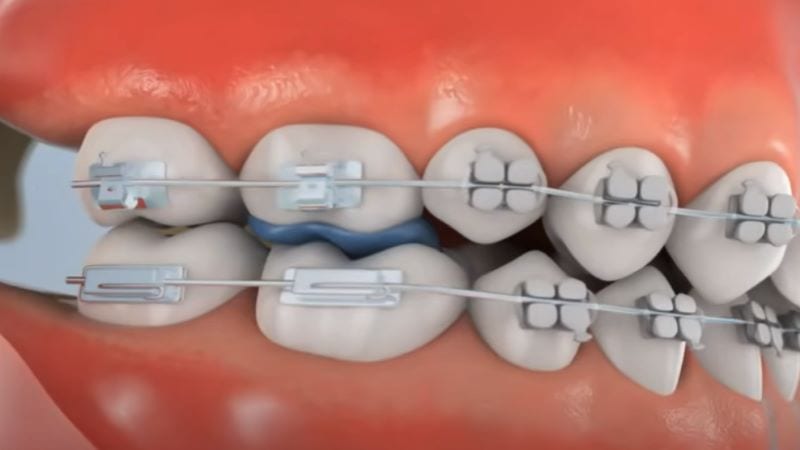During bites, the upper and lower teeth will not come into contact thanks to a little device called a biting block, sometimes called a ramp or turbo. Bite blocks are a device that orthodontists use to prevent patients from chewing off the brackets on their braces while their teeth are moving into the proper alignment. The best way to remove bite blocks is to visit your dentist, but there are some concerns about whether you can remove them yourself or not.
In fact, you should not remove bite blocks at home. Bite blocks are placed by a dentist or an orthodontist to help align your teeth and jaw. If you want to get rid of it by yourself, your jaw and teeth may suffer injury.
How To Remove Bite Blocks At Home

Bite blocks are employed when a patient bites down and a tooth “bites” on a bracket. Bite blocks are used to stop unneeded breaking. Bite blocks are tiny glue blobs that are tooth-colored and glued on the upper or lower molar teeth. The bite blocks will be removed after your teeth have straightened, and you are no longer biting your braces.
Many people think they can remove their bite blocks at home, but we don’t recommend it. It’s best to leave it to the professionals, like your dentist. Here’s why:
Your bite blocks are custom-made for your mouth, so only a dentist will know how to remove them correctly. You could hurt your teeth or gums if you try to do it yourself.
Plus, when you come in for a removal appointment, your dentist can check for any changes in your oral health since your last appointment. So it’s really in your best interest to let a professional handle it.
How Long Does It Take For Bite Blocks To Wear Down?
Bite blocks are commonly used in orthodontic treatment to help move teeth into the correct position. They are usually made of acrylic and fit over the teeth. However, bite blocks can wear down over time, depending on how often they are used and how strong the patient’s bite is.
Most bite blocks will show wear after 6-9 months of use. The front teeth will usually show the most wear, as they are the ones that come into contact with the bite block when biting down. The back teeth may also show some wear, but it will usually be less than what is seen on the front teeth.
Patients with a stronger bite may see their bite blocks start to wear down sooner than those with a weaker bite. This is because the stronger one puts more force on the block, which can cause it to break down quicker.
Bite Block Fell Off: Reasons & Solutions
If your bite block falls off during a procedure, don’t panic. There are several reasons why this may happen, and there are also several solutions.
The causes
Your bite block may fall off because it wasn’t put on correctly in the first place. If this is the case, simply have the dental assistant or dentist put it back on correctly. They will ensure it is tight and secure before starting the procedure again.
Another reason for a loose bite block is that you may have moved your mouth during the procedure. If this happens, the dentist or assistant will readjust the bite block and ensure it is tight before continuing the procedure.
There are several bite blocks constructed of materials that degrade over time. Therefore, it’s crucial to contact your orthodontist if your bite blocks are wearing down to the point where they are no longer holding your teeth apart or if one has completely detached from the tooth surface.
What to do
Call your orthodontist to arrange a repair if your bite blocks break or fall off. Maintaining the bite blocks in good condition is crucial so that your bite may be corrected as quickly as possible. The bite blocks are there to speed up and improve the effectiveness of your therapy.
What To Do Once The Bite Block Is Removed?

Your braces are finally coming off. You’ve waited so long and taken good care of your teeth, but now that the moment is here, you might be wondering what to do next. Here are a few things to keep in mind once the bite block is removed:
- 1. Schedule a follow-up appointment with your orthodontist. This is important to ensure that your teeth are tracking correctly and that everything looks good.
- 2. Start using a toothbrush with softer bristles. Now that your teeth align correctly, you’ll want to use a toothbrush that won’t damage them.
- 3. Floss regularly. To keep your teeth healthy, you should floss every day to remove plaque and bacteria.
- 4. Wear a retainer as directed by your orthodontist.
Why Do Bite Blocks Hurt?
There are a few reasons why bite blocks can hurt:
- They can put pressure on your teeth and gums. This can cause pain or discomfort.
- The force of the bite block can cause your jaw muscles to tighten up. This can lead to headaches or neck pain.
- Some people simply have sensitive teeth and gums that make them more susceptible to pain from the bite block.
Most of the discomfort can be reduced by over-the-counter pain relievers such as acetaminophen (Tylenol) or ibuprofen (Advil or Motrin). In addition, anesthetic gels like Anbesol or Orajel may occasionally be helpful.
FAQs
Are bite blocks permanent?
It’s reassuring to know that biting blockers are just temporary. The bite block can be removed once your jaw has had enough practice biting and your teeth are more properly positioned.
Is biting turbos difficult at first?
Although it varies, generally speaking, we advise folks to wait 5-7 days before acting. After the first week, please get in touch with us if you’re still hurting to the same degree.
How do I know if I need a bite adjustment?
Your jaw hurts when you wake up—popping as your jaw opens and closes—a sense of uneven chewing.
Reference:

I’m Renee L. Bazile, and I’m passionate about health and fitness. Keeping fit and active has always been a passion of mine.
I graduated from Nova Southeastern University with a degree in Exercise Science. I believe being healthy and fit is the key to a happy and successful life.
Over the past ten years, I have trained more than 10.000 clients in the fitness industry. My goal is to help others achieve their fitness goals. The saying goes, “If you don’t use it, you lose it.” Therefore, we all need to exercise regularly to maintain health and fitness.
In 2019, I became an expert on health & fitness topics for ThisIsGuernsey after starting my blog about health & fitness. I relax and rebalance my life by walking, fishing, and blogging in my free time.
